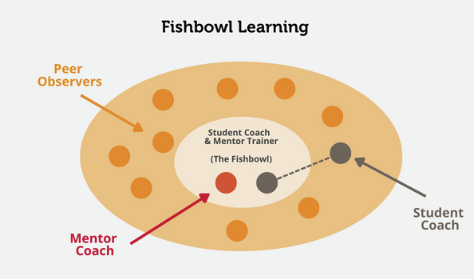Mentor Coaching refers to a process of coaching with expert feedback, provided by experienced coaches to individuals who are pursuing Coach Certification, or renewing their Coaching Credentials. Being mentored is an incredibly useful experience and allows coaches to develop and refine their coaching practice and identify and is a curriculum requirement for any ACC or PCC Accredited Coach Education.
The benefits of Mentor Coaching
Improving Coaching Competencies
Mentor coaching allows coaches to receive constructive feedback on their coaching performance. Coaches can work on areas that need improvement and enhance their coaching competencies, including active listening, powerful questioning, establishing trust, and fostering client growth.
Enhancing Reflective Practice
Mentor coaching encourages coaches to engage in self-reflection and self-awareness. Through the process, coaches can identify their strengths, challenges, and areas for growth, leading to continuous improvement in their coaching practice.
Understanding the ICF Core Competencies
The ICF has established a set of core coaching competencies that coaches must demonstrate to become credentialed. Mentor coaching helps coaches understand and embody these competencies, aligning their coaching approach with the ICF standards.
Building Confidence
Working with an experienced mentor coach can boost a coach’s confidence in their coaching abilities. As coaches gain valuable insights and refine their skills, they become more assured in their capacity to guide clients effectively.
Ethical Considerations
Mentor coaching often includes discussions on ethical dilemmas and considerations in coaching practice. This helps coaches navigate complex situations while maintaining high ethical standards.
Personal Growth
Mentor coaching can also be a personal growth journey for coaches. Through self-reflection and feedback, coaches can develop personally, which in turn positively impacts their coaching practice.
Mentor Coaching and ICA’s Coach Training
Mentor Coaching at ICA takes place over a 4 – 12 month period in a cycle that allows for listening and feedback from the Mentor Coach while also allowing reflection and practice on the part of the student coach being mentored. It is progressive learning with a period of 4 months between the first and the final session.
The Mentor Coaching classes are run using a “fishbowl strategy”. At its most basic a ‘Fishbowl’ conversation is a dialogue that occurs between a smaller group of people while a larger group look on. It is often used in very large groups such as conferences where it would be impossible for everyone to participate. The topic or discussion is had by a smaller group while the rest of the participants look on; reflecting and observing. In Mentor Coaching Labs the Student Coach and the Mentor Coach Trainer are inside the fishbowl. The Student Coach plays their recording and then engages in a Mentoring dialogue with the Trainer while the other students look on; observing and reflecting.

The added benefit of bringing a recording rather than coaching live in class is that the Student Coach can be both INSIDE and OUTSIDE the fishbowl at the same time. They are OUTSIDE the fishbowl while the recording is being played and are able to look on as a 3rd party observer. This distance allows the student to reflect on their own coaching, noticing things such as tone and style as well as identifying specific competency areas that might require further development.